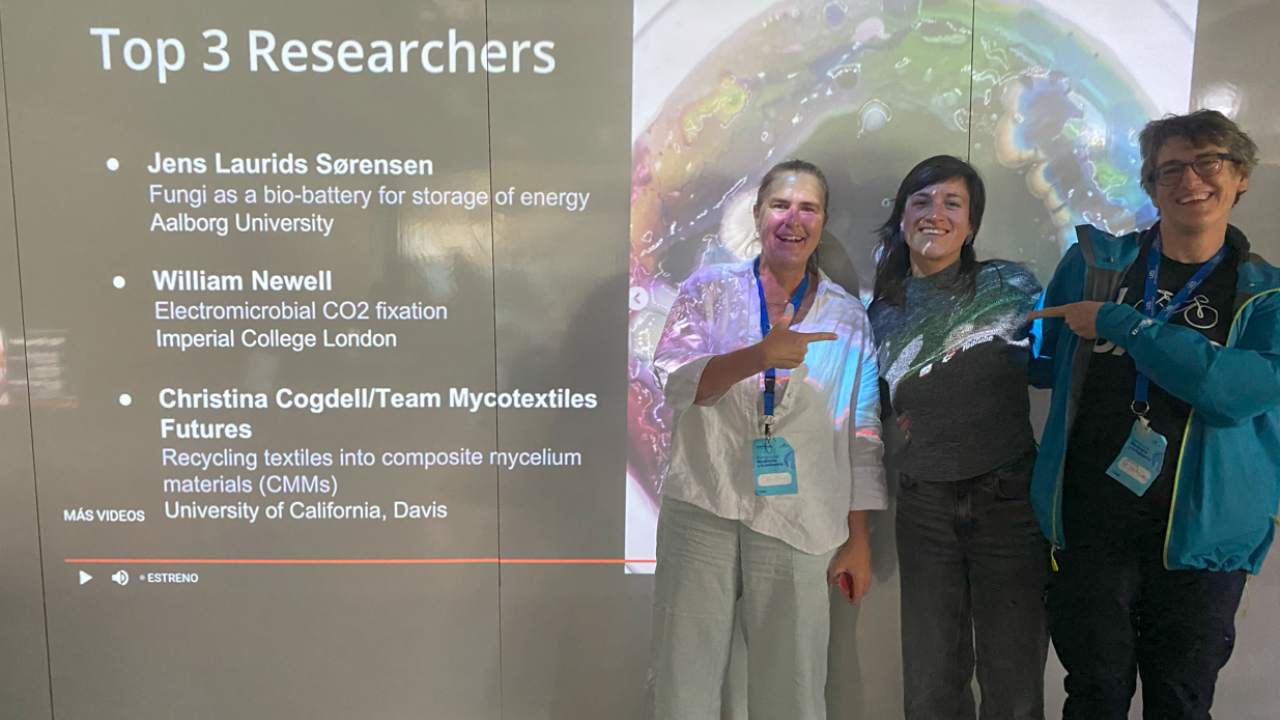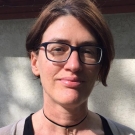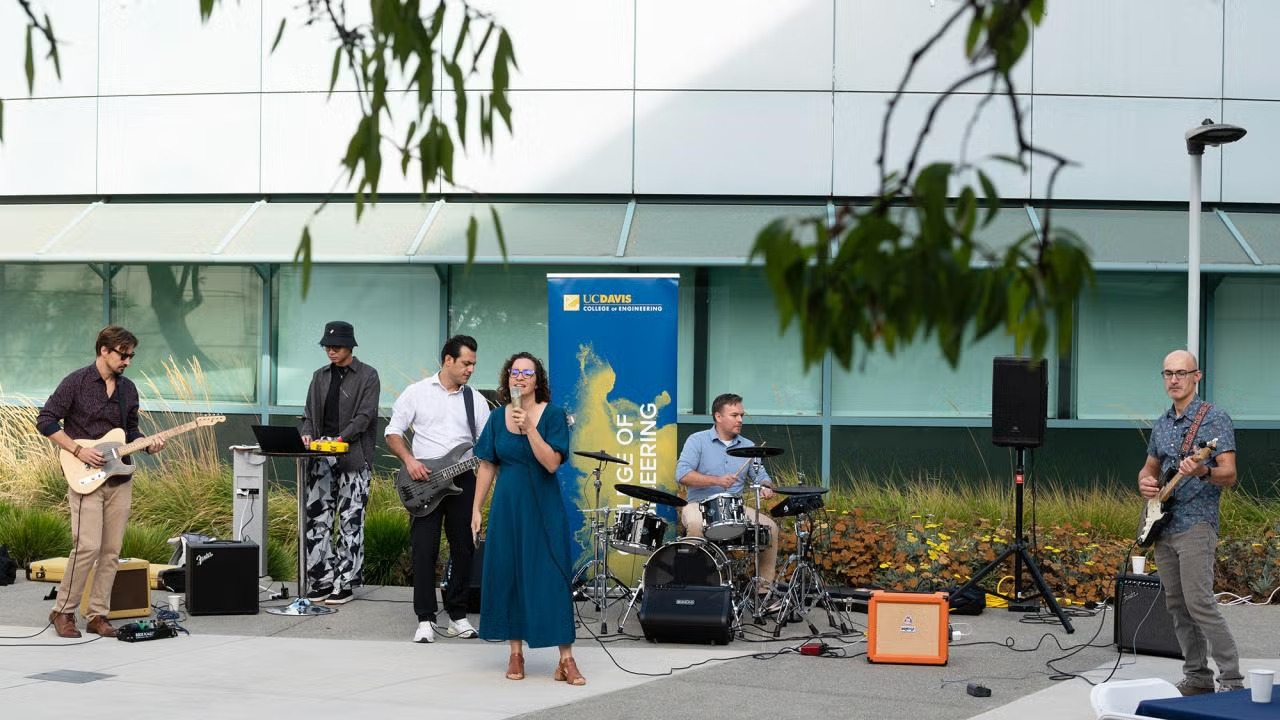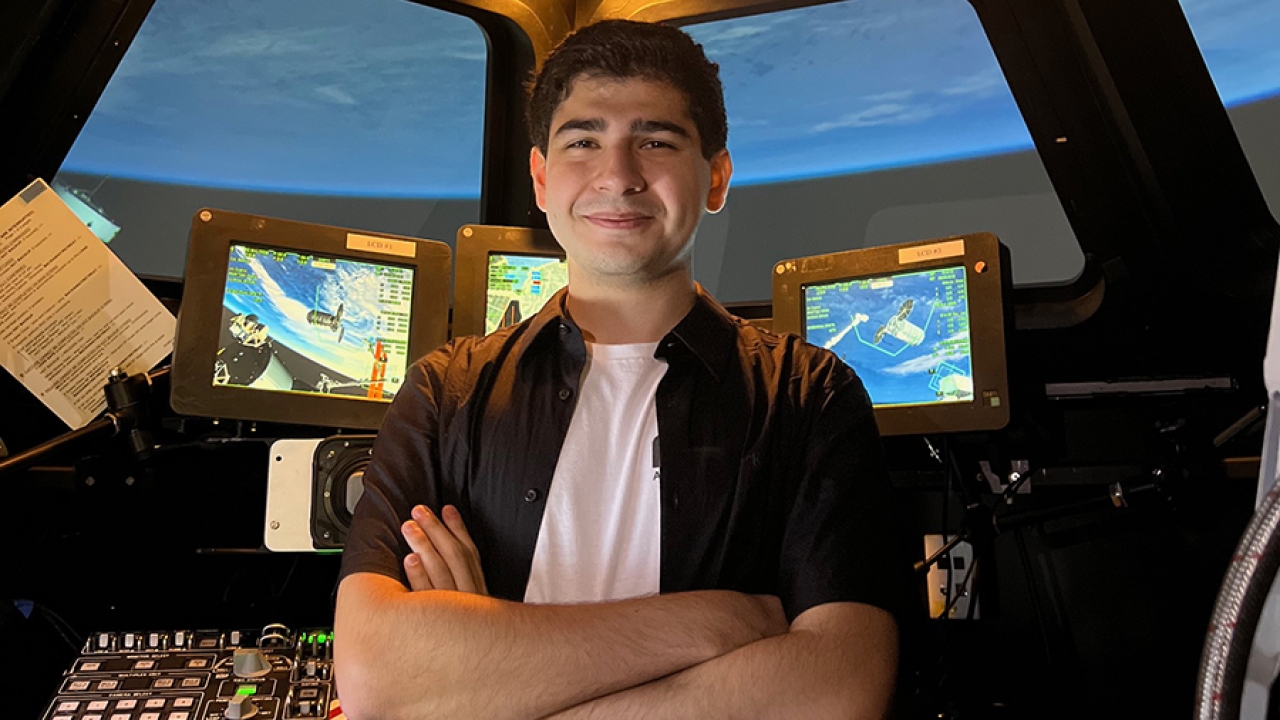
UC Davis Team Shines in Global Fungi Competition, Paving the Way for Sustainable Construction
The annual global production of textile waste amounts to 92 million tons. To help alleviate this global climate burden, a team of researchers at the University of California, Davis, is currently working to divert textile waste from landfills and turn it into composite mycelium materials, or CMMs, for use in architecture and the construction industry.
Alejandra Ruiz, lecturer in design, Christina Cogdell, professor of design, and Valeria La Saponara, professor of mechanical and aerospace engineering, recently won third place in the research category of the Future is Fungi global competition for their project MycoTextile Futures.
"I was happy that our design ideas on textile waste bioremediation with fungi were validated on an international stage," said La Saponara. "Alejandra devised the original concept and she is a brilliant scientist. She also comes from Colombia, which is greatly affected by abundant textile waste. This award gives her additional visibility and a voice to the table. Research in fungal materials needs many different perspectives and expertise. We need all hands on deck to change the world."
The team has already researched, tested and published on CMMs in the construction sector made from fungi, repurposed textile waste and nut waste substrates. In their published conference paper, presented by Ruiz at the Product Lifetimes and the Environment 2023 conference, they found different nut textures contribute to stiffness and strength in CMMs. Now, they aim to further their research to better understand how fungi can be safely incorporated into the soil and if mushrooms grown on textile waste are chemically different from normal, edible mushrooms.
During the Future is Fungi competition, there were 260 ideas from 70 countries. MycoTextile Futures was the only selected winner from the Americas, an accomplishment that the team is proud of.
"For me, it is a validation not only of the importance of developing new composite materials for architecture and design from mycelium and textile waste, along with local ag waste, but also of our goal to test the nutritional value of mushrooms grown on this composite material," Cogdell said. "Should they be generally regarded as safe, it would be amazing to join two industries to work together to improve the carbon footprint of architectural materials, while revalorizing textile waste into materials and moving it toward biodegradation, with possibly food production as an output."





